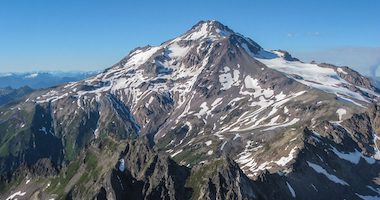Mountaineering Training | Rest & Recovery
Posted by:
Categories: Mountaineering Fitness & Training
Rest and recovery is an important part of the training process and there are many techniques, both active and passive, that can help. Recovery from your training efforts can be looked at from physiological and psychological perspectives. Here are some tips:
1. Plan Your Training: The first step in getting adequate recovery is crafting a solid training plan allowing for phases of training to build progressively and allowing time for active rest.
2. Keep Track: Keeping a training log is a good way of reviewing your progress. I suggest recording not only the volume, intensity, and type of each workout completed, but also your own notes about how you felt in each workout. Self-monitoring how you feel mentally (strong, weak, interested, un-interested) will allow you to see how you are progressing in an overall sense.
3. Get Psychological Rest: Psychological strategies are important factors in reducing and managing stress. Relaxation, meditation, reading, visualization, and using a coach as a sounding board are all valuable tools in helping to maintain focus and a positive attitude throughout your training. Relaxation is also helpful in ensuring quality sleep, which is essential for recovery.
4. Take Social Time: Too much of a good thing can be bad for us. Taking a complete break from climbing and hiking to participate in alternative activities can be a good way to decompress. Mix your hard training up with a different sport; play soccer, frisbee - anything really. At RMI there is a penchant for beach volleyball, ping pong, and horseshoes - it’s a nice mental break from the mountain and those downtime matches are intense but a lot of fun.
5. Get Therapeutic Rest: Sports massage, some forms of yoga, hot baths, and hydro-massage are just some examples of the many techniques available to help relax muscles after training and prepare for subsequent training sessions.
6. Pay Attention to Nutrition: Proper nutrition is essential for complete recovery. Quality food that is rich in nutrients is a key requirement for re-supplying energy stores and maintaining our body, it’s muscles, bones, organs, and systems (see Nutrition for Mountaineering Training for more information on nutrition).
Mountain climbing is tough on the mind and body - and so is training for it. When we climb we steal every opportunity to recover from the hard work so that we can get up the next day and do it again. Training demands the same attention to rest and recovery. This is a work-hard, rest-hard activity and often times your success will be as much dependent on how well you rest as how hard you train.
- John Colver
John Colver is a longtime climber, former mountain guide, and certified personal trainer with the American Council of Exercise. Colver introduced outdoor fitness classes to athletic clubs throughout the greater Puget Sound region before creating his adventX brand. Currently, adventX leads training programs in Seattle and Colver presents clinics on outdoor fitness at companies such as Microsoft, Boeing, the American Lung Association, and REI. Colver lives in Seattle.
Questions? Comments? Leave a comment to share your thoughts with John and other readers!














Comments (1)
Starting week 6 of Fit by Nature, awesome philosophy of fitness by active, outdoor lifestyle. I love the Daily Dozen and being able to link the natural features of our community: bike paths, parks, beaches & hills to create a mini adventure every day, while making sure I’m ready for the big adventure any day!
Posted by: Jim McCracken on